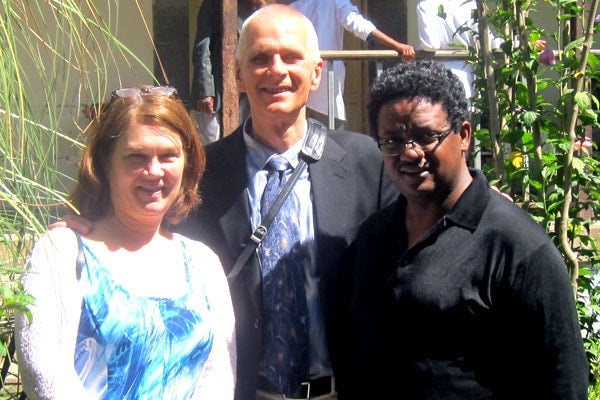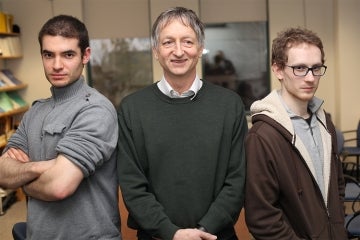
Training family physicians in Ethiopia
Published: February 6, 2013
Ethiopia’s first-ever class of family medicine residents started training this week – helped by the Department of Family and Community Medicine (DFCM) at the University of Toronto.
In three years, the residents will graduate from Addis Ababa University to become the first family physicians in a country of 90 million people.
“The introduction of family medicine to Ethiopia will strengthen primary care,” said Dr. Lynn Wilson, professor and chair of the DFCM at U of T. “The emphasis of family medicine on comprehensiveness of care, the doctor-patient relationship and dealing with undifferentiated symptoms of illness will reduce health inequity and further the goal of ‘good health for all.’ “
The introduction of family medicine to Ethiopia is backed by an international collaboration that includes the Toronto Addis Ababa Academic Collaboration (TAAAC) and the University of Wisconsin.
Since 2008, U of T faculty physicians have assisted colleagues at Addis Ababa University to develop a family medicine residency curriculum, including developing a role for family medicine in the Ethiopian health care system. On Feb. 4, the Ethiopian Federal Ministry of Health gave its formal commitment to family medicine, signaling the beginning of family medicine training in the country, at an inauguration ceremony in Addis Ababa attended by tThe Ethiopian minister of health, His Excellency Dr. Kesete Birhan Admasu, and the Canadian ambassador, His Excellency David Usher, along with Professor Wilson.
“It is an honor to work with our Ethiopian colleagues and in so doing we are fulfilling our social responsibility and also learning a great deal about primary care innovation, particularly in resource-constrained environments,” Wilson said.
“This is learning that we can bring back to our clinical settings and learners in the DFCM. We are delighted to be witness to history.”
Fifty-one per cent of physicians in Canada are family physicians. The DFCM is the largest family medicine department in the world and has trained 36 per cent of province-trained family physicians. It is recognized internationally for its clinical, educational and research excellence.
Dr. Dawit Wondimagegn is the program director in the Department of Family Medicine at Addis Ababa University.
“I think family medicine is going to change the face of primary care in Ethiopia. Given the contextual difference it will evolve to define itself,” Wondimagegn said.
The Ethiopian family medicine residents will address a constellation of medical problems significantly different from the patterns seen by their peers in Canada. They will treat more infectious diseases, such as TB, malaria and HIV. They will encounter higher rates of perinatal and maternal mortality and poverty-related conditions, especially malnutrition. Like most countries in sub-Saharan Africa, Ethiopia is experiencing an increase in non-communicable diseases such as diabetes and heart disease. Combined with the ongoing challenge of infectious diseases, this has given rise to the phenomenon of a “double burden” of disease.
“In the face of a severe shortage of human resources for health, Ethiopia has undertaken an unprecedented expansion of medical education,” said U of T Assistant Professor Dr. Jane Philpott. “The new program in family medicine will build a cadre of physicians providing comprehensive care who are well-trained, supported and valued.
“There is good evidence that the development of this physician workforce with a strong focus on primary care will significantly improve health outcomes.”



